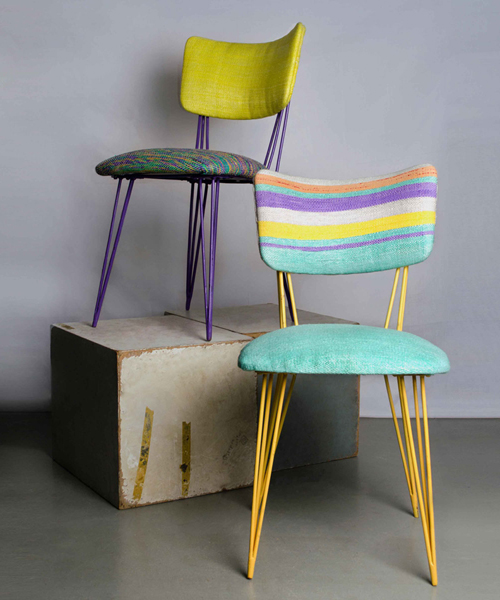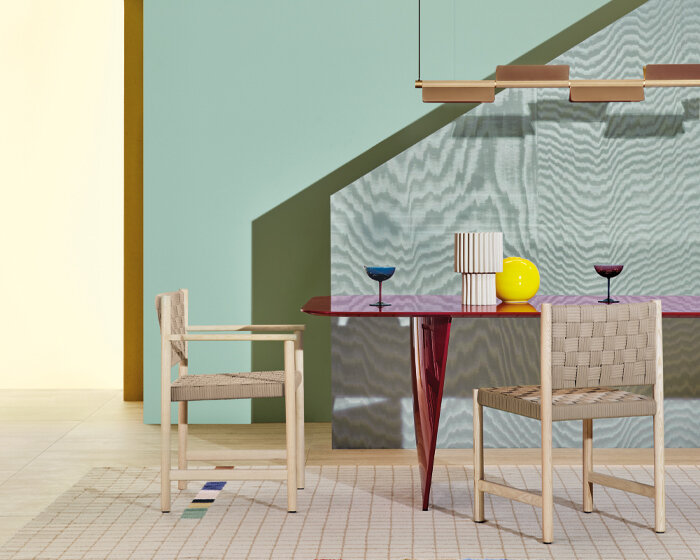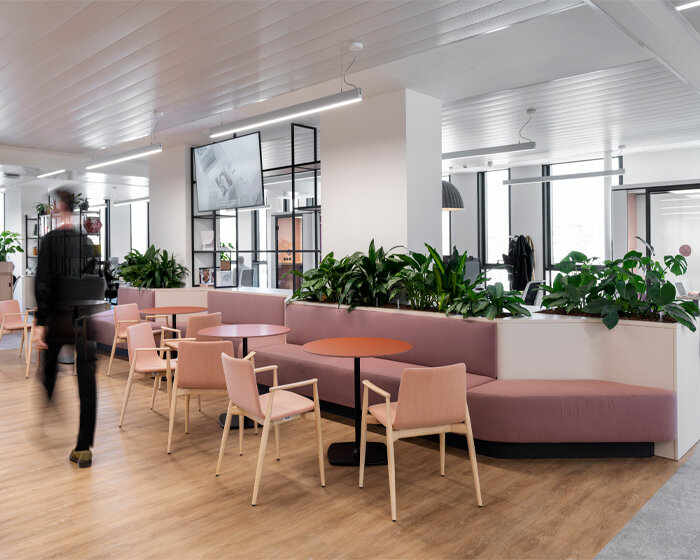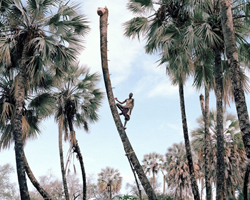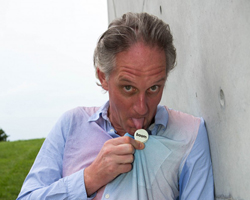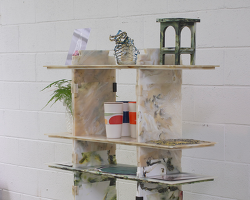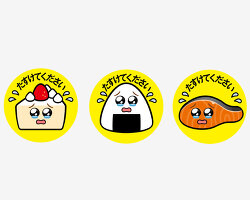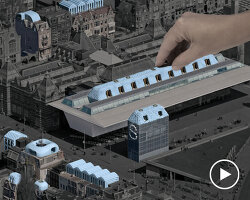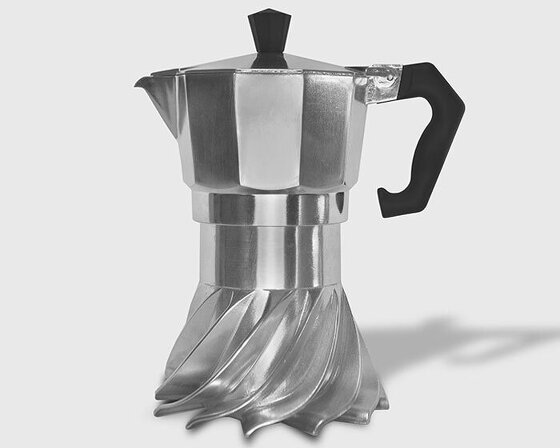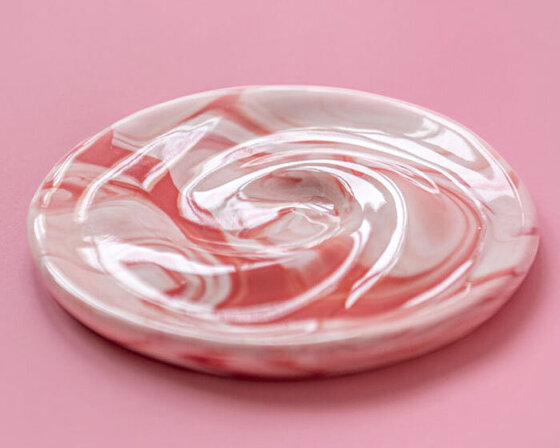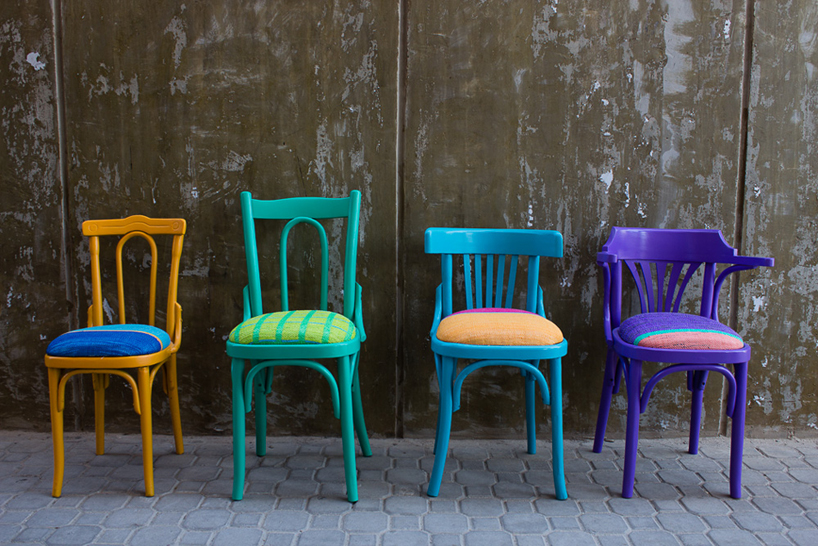
design indaba 2016: reform studio is a cairo-based design firm applauded for its sustainably developed products that validate the possibilities of sophisticated, recycled objects.
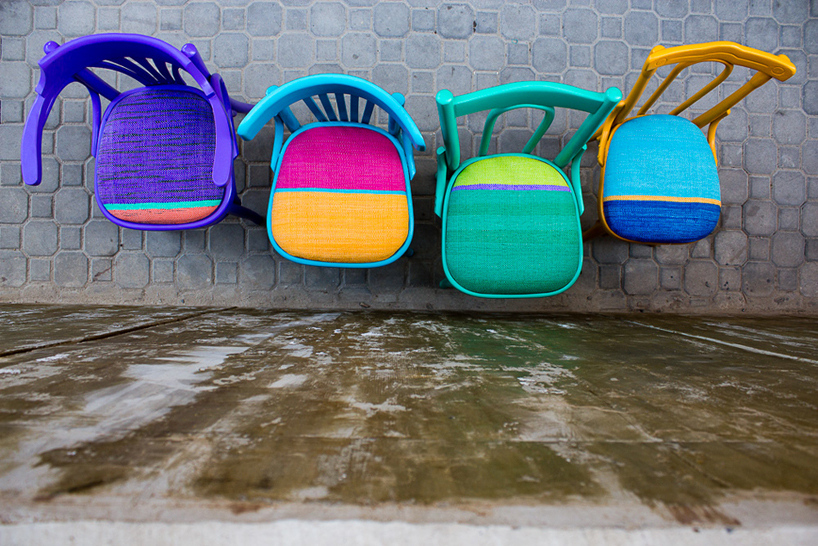
a range of furniture is transformed by the vibrant plastex material developed by studio reform
the studio is influenced by design that has a positive impact on the environment, and has conceived plastex – a handmade material of woven reused plastic bags that have been reduced down to a thread-like form, and interwoven on a traditional egyptian handloom in-house. the durable and washable fabric informs the basis of reform studio‘s general style and contemporary range of furniture, which is characterized by the brightly colored textile that ‘aesthetically fits into our daily life, and innovatively preserves our resources‘; and ultimately, ‘raises awareness about how we define waste the possibilities behind reusing what was once destined to be trash‘.
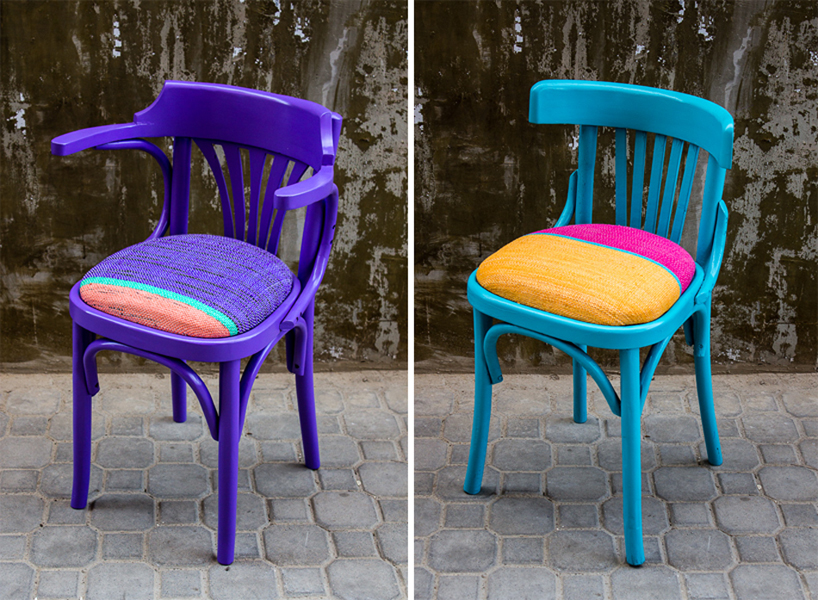
the durable, washable fabric characterizes the studio’s contemporary range of furniture
due to the varying dyes of the collected and donated plastic bags, plastex is multi-coloured and comes in four different types of patterns: plain, stripes, zebra and plaid. it is applied to reform studio’s eclectic range of furniture that includes: retro stools, arabic coffee shop-inspired chairs, scandinavian-style wooden benches, beautiful recycling bins and various textiles for the home.
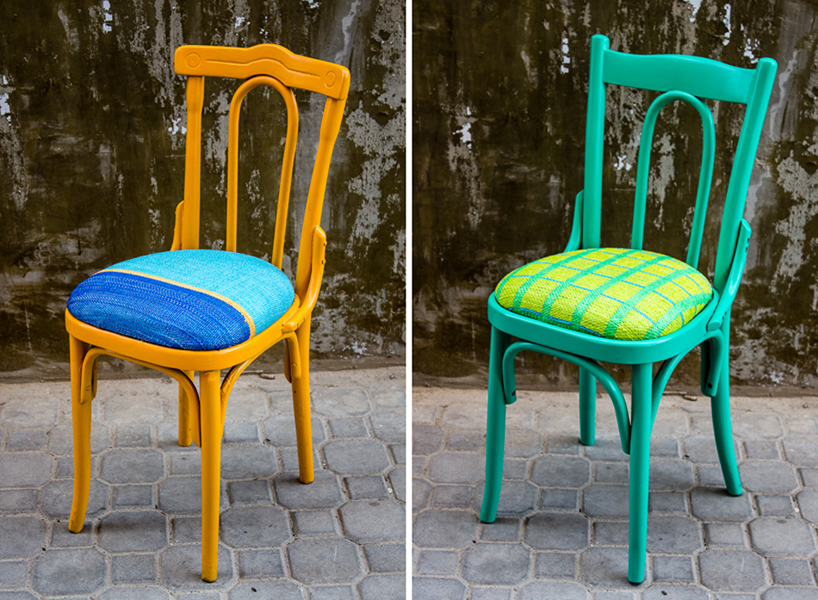
plastex comes four different types of patterns: plain, stripes, zebra and plaid
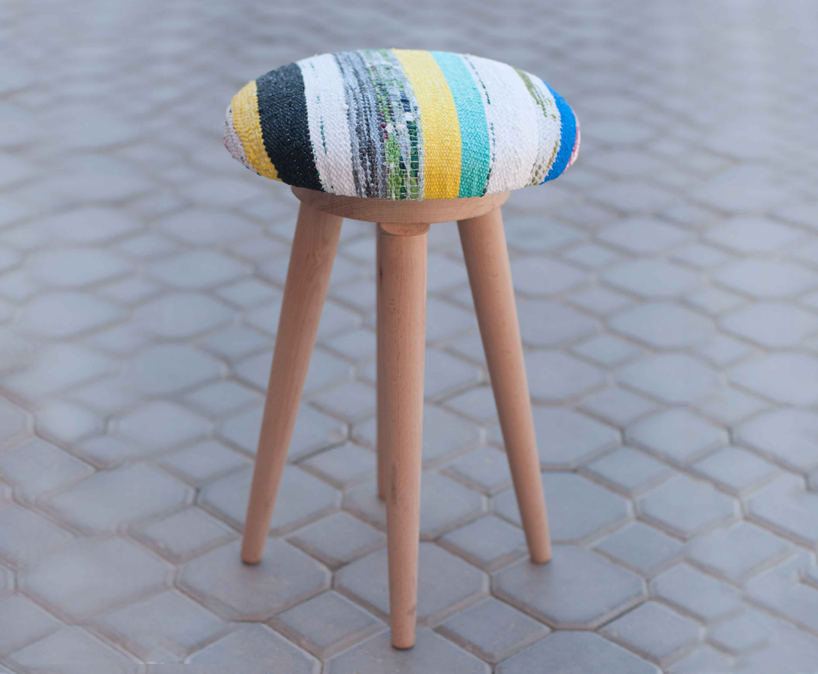
retro stools are given new life with the multi-colored woven material
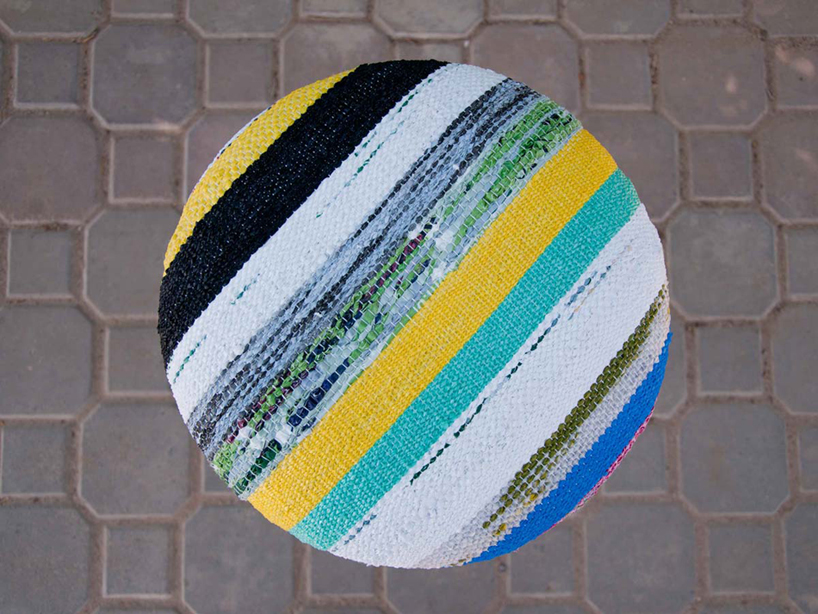
a look at the diverse, colorful plastex textile
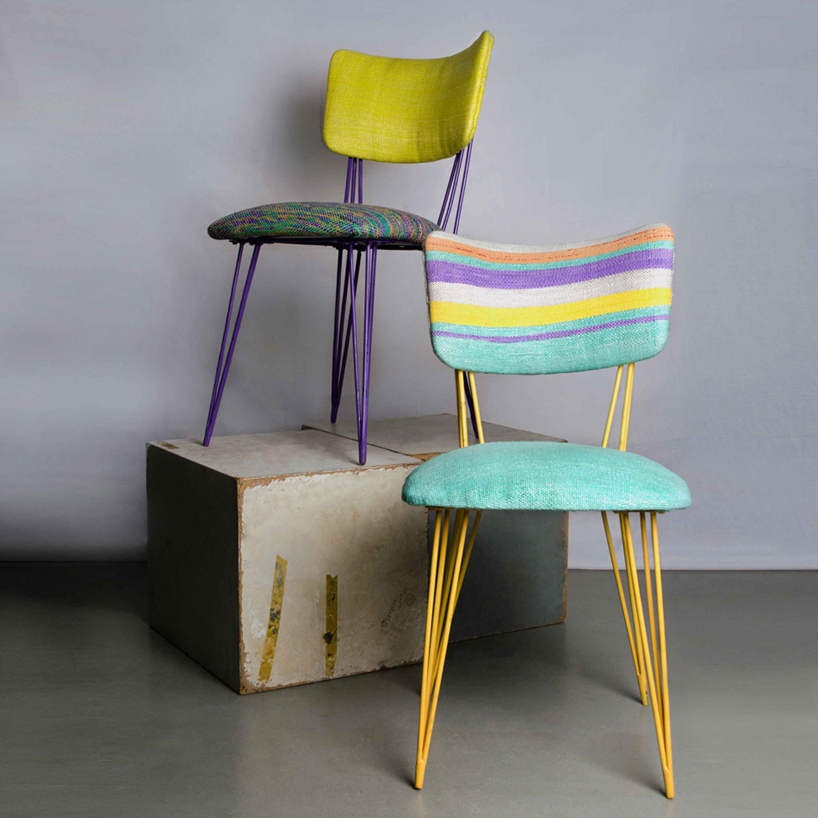
‘grammy’s’ chair collection 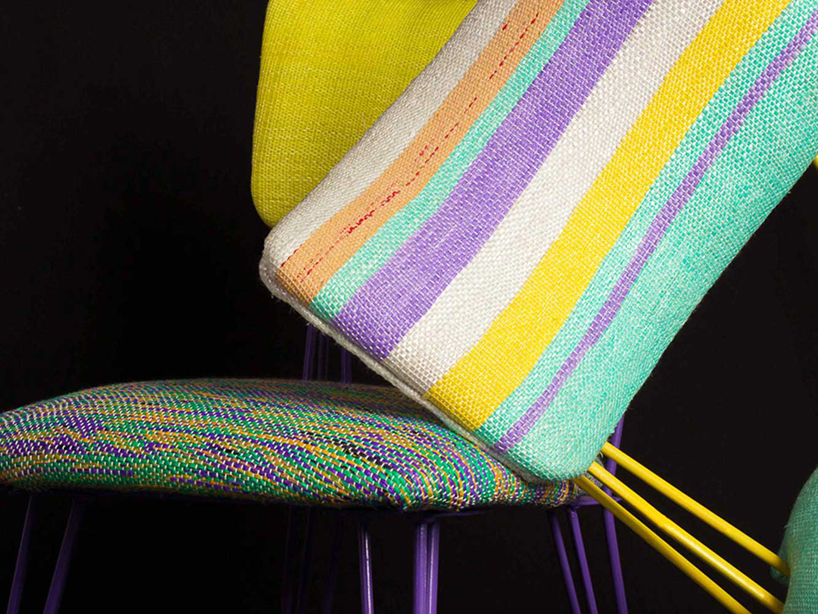
each textile is unique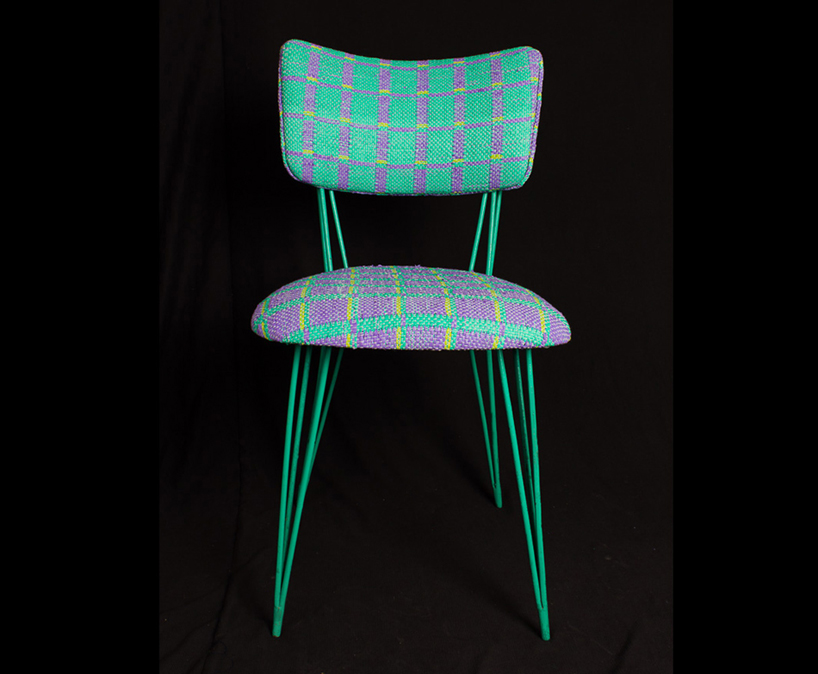
‘grammy’s’ chair in plaid motif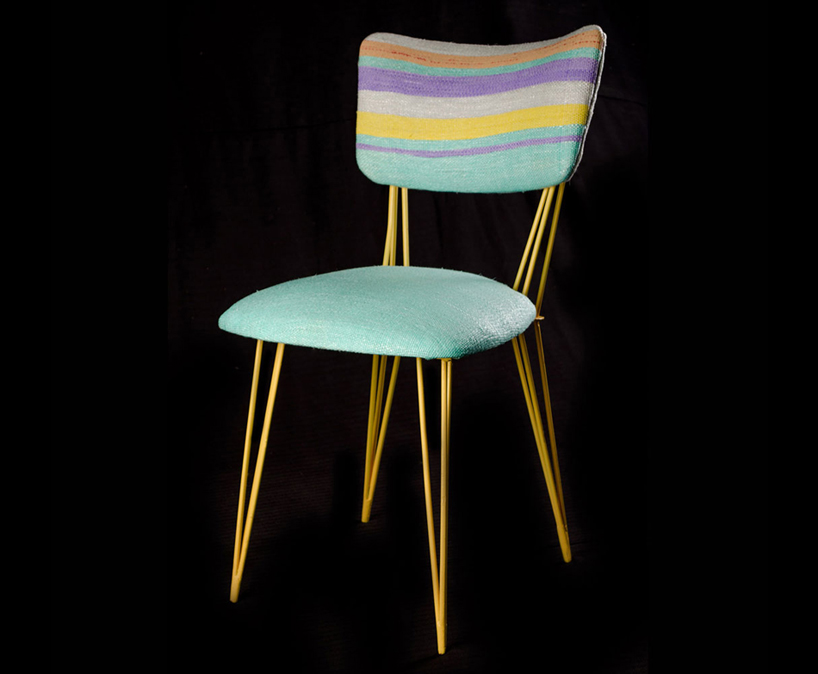
‘grammy’s’ chair in plain and stripe motif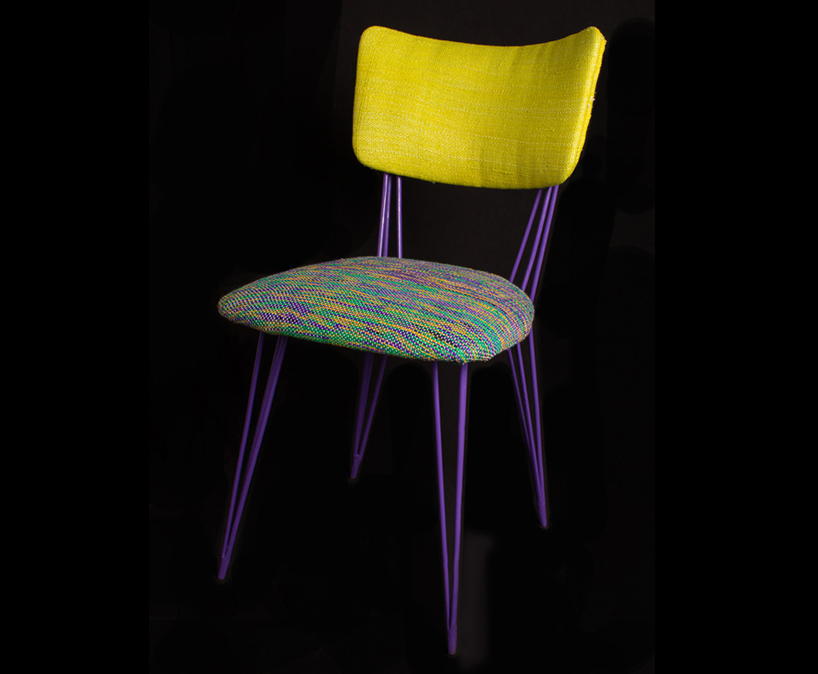
‘grammy’s chair’ in plain and zebra motif
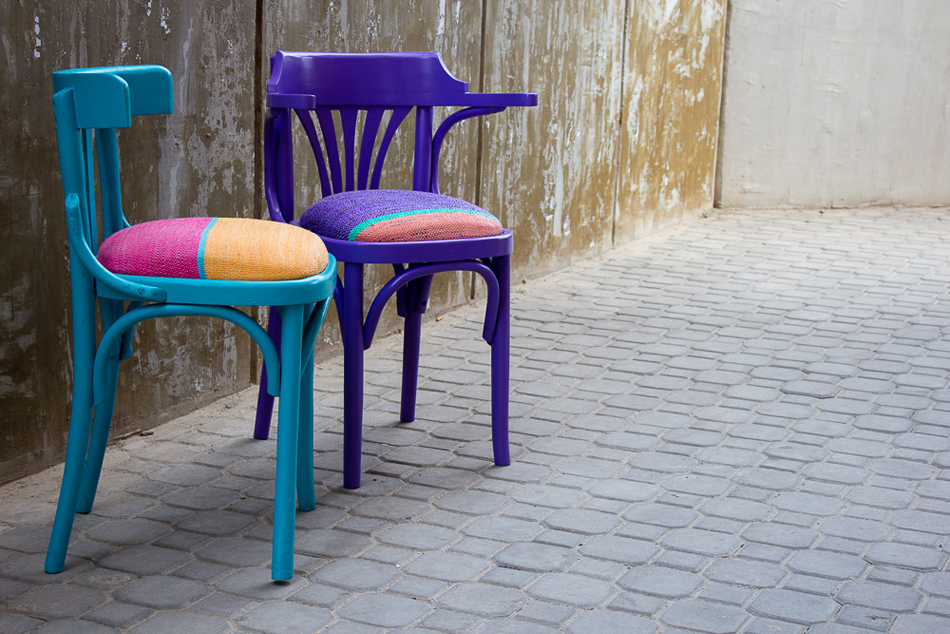











—
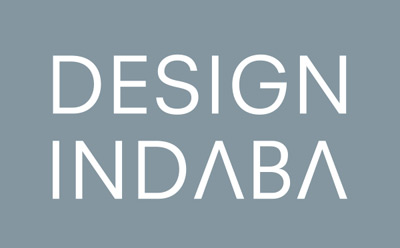
design indaba
is a multifaceted platform committed to a better world through creativity. the south-african online publication hosts an annual festival and social impact do tank in cape town. the design indaba festival has been created by ravi naidoo in 1995, with focus on african and global creativity, through the lens of the work and ideas of leading thinkers and doers, opinion formers, trendsetters and industry experts.
Save
Save
Save
Save
Save
Save
Save
Save
Save
Save
Save
Save
Save
Save
Save
Save
